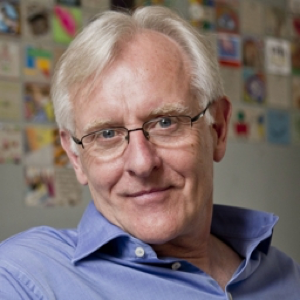Author: ReMAP-PhD Iordanis Tseremoglou
Current aircraft maintenance leads to over-maintenance as parts are replaced after a defined number of flight hours, flight cycles or calendar days, whichever comes first, even while they are still in good health. In ReMAP we investigate the possibilities of Condition Based Maintenance (CBM). With CBM the health of a component is being monitored and only repaired when damaged or replaced when close to failure. Data collected from sensors from aircraft systems and structures will be analysed through machine learning diagnostic and prognostic algorithms to create real-time adaptive maintenance plans for airlines. But there will be uncertainty in the outcome of these algorithms and, as a result, uncertainty in the maintenance planning decision tool of the airline fleet. For the first time the impact of this uncertainty in CBM will be assessed. An introduction on the research of ReMAP-PhD Iordanis Tseremoglou.
Optimal Maintenance Planning despite Uncertainty in CBM
“The CBM algorithms predict the remaining useful life (RUL) of a component. But there is no algorithm that is one hundred percent accurate. There will always be some uncertainty. When an algorithm predicts a remaining useful life for a system of 100 hours, it might as well be 120 hours or 80 hours. This will result in an uncertainty of the maintenance planning of the airline fleet. The main goal of my PhD-research is not only to assess the impact of the uncertainty in the maintenance scheduling decision tool for the airline fleet, but also to define the optimal point in time to conduct maintenance based on these predictions. With systems that affect the safety of the aircraft one has to be 100% sure that the system won’t fail. On the other hand, for systems that are not safety related, for instance a cooling unit, you can be more flexible in terms of scheduling when assessing the RUL prediction. While considering safety as the cornerstone of maintenance scheduling, there is no doubt that at the same time it should be performed in a cost effective and efficient way, reducing potential disruptions in the daily flight schedule. These trade-offs will all be taken into account and result in the most optimal maintenance planning, and ultimately, they will help me evaluate the impact of CBM potential in aircraft maintenance . I will examine 12 systems from Boeing 787 and Embraer E175 fleet, among which the Cabin Air Conditioning and Temperature Control System (CACTCS), Integrated Cooling System (ICS) and Auxiliary Power Unit (APU).”
Adapt maintenance planning fast and efficient
“The incorporation of the uncertainty of the predictions in the planning model and any potential rescheduling has to be done fast. The main objective is to adapt maintenance planning within 2 minutes and at the same time minimize deviations from the current maintenance schedule. Considering all possible system health realizations, two minutes is quite fast and will be a big challenge to achieve. The algorithm needs to be fast and efficient and produce results that are worthy for the airline. Based on it, the decision will be made on the most appropriate action to follow, for example to perform a task as scheduled or defer it for a week. So there is a lot at stake. Fortunately, I don’t start from scratch. Prognostics algorithms are being developed now already in ReMAP and I can use their results. Ultimately I want to present a tool almost ready-to-use by an airline.”
PhD Iordanis Tseremoglou
The Greek Iordanis is a former engineer of the Greek Air Force. Since August 2018 he lives in the Hague, the Netherlands. His PhD research on ReMAP started the 15th of December 2020 at the Faculty of Aerospace of Delft Technical University. ReMAP will end June 2022 but Iordanis’research continues for a total of four years.






